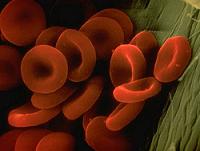Advertisment
Blood donor age, sex matters for transfusion success

Increased mortality when blood came from young and female donors. Transfusion recipients getting red blood cell (RBC) units from younger and/or female donors had increased mortality, results of a large, prospective cohort study in Canada found.
When donors were in their late teens or 20s, the hazard ratios for recipient mortality per unit of blood transfused were 1.08 (95% CI 1.06-1.10) and 1.06 (95% CI 1.04-1.09), respectively, as compared with transfusions from donors in their 40s, according to Michaël Chassé, MD, PhD, of Université Laval in Quebec City, and colleagues writing in JAMA Internal Medicine.
Similarly, when donors were female, the hazard ratio for death per RBC unit was 1.08 (95% CI 1.06-1.09), the researchers found. The hazard ratios in these analyses reflected adjustments for Charlson Comorbidity Index score.
Chassé and colleagues had no firm explanation for these findings, calling the findings related to age “unexpected,” but they pointed out that various features related to blood change with age. Among these are erythropoiesis, immune tolerance, inflammation, oncogenicity, and premature cellular turnover. People who live longer may also have different genetic factors affecting RBC characteristics, they suggested.
The researchers also noted that, while volunteers with certain medical conditions are excluded from donating blood, it’s possible younger patients are unaware of underlying conditions that may become evident as they age. Current screening questionnaires would miss this, the authors said.
An accompanying editorial by Harvey Klein, MD, from NIH Clinical Center in Bethesda, Md., highlighted the differences in blood from female versus male donors. These include “lower hemoglobin levels and different protein concentrations to the frequency of HLA, platelet, and granulocyte alloantibodies,” he wrote.
Klein wrote that “the specific conclusions are tantalizing and clearly merit further exploration. More generally, this study highlights the need to further investigate which demographic and genetic donor factors aside from blood groups might influence the safety and efficacy of the different blood components.”
Previous studies had also found adverse outcomes in transfusion recipients connected to specific donor characteristics. Consequently, Chassé and colleagues put together a study linking data from a blood collection agency to clinical and administrative data from four academic hospitals in Ottawa, Ontario. The data were from October 2006 to December 2013 and included 30,503 RBC transfusion recipients who received 187,960 RBC transfusions for a wide variety of indications; there were 80,755 unique blood donors.
The greatest risk in male recipients was in those who received blood from the youngest donor groups. Overall, the youngest recipients had the fewest deaths.
Klein emphasized that the study results need verification before they are acted on, and future research should use large databases such as the Recipient Epidemiology and Donor Evaluation Study (REDS-III), a 7-year multicenter transfusion safety research initiative by the National Heart, Lung, and Blood Institute.
“REDS-III should serve as a model for more extensive linked donor recipient research in the United States and internationally,” Klein said.





